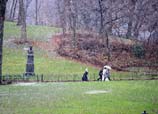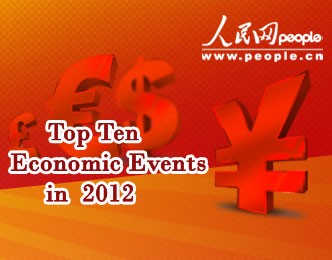
 |
| Golden Scene: Cultural diversity leads to prosperity. (Photo/Li Zhenyu) |
The Cultural Transformation
China's cultural sector has become increasingly commercialized, a process that is leading to a more open, market-oriented environment, increased participation of private capital, diversified cultural contents and the prosperity of Chinese cultures.
A sound market mechanism has gradually been forming, and cultural entities has transformed from public-funded institutions into self-sustaining companies; labor relations changed, and money flown in and out of the sector with more ease.
FROM INSTITUTION TO CORPORATION
By the end of 2010, more than 4,300 cultural institutions in publishing, movie production, performing arts and other sectors had completed their transformations, since the start of the cultural system reform in 2003. By the end of June 2011, 95.9 percent of publishing houses, 90.3 percent movie studios and 27.8 percent theaters and troupes nationwide had transformed into independent market players, according to the official statistics.
Changchun Film Group, the first movie studio in China to complete its organizational reform in 2003, a former state-owned public institution with an accumulated loss of 30 million yuan ($4.7 million) in 1997, reaped a net profit of 50.8 million yuan ($7.94 million) in 2012 after restructuring.
A number of restructured cultural entities even completed initial public offerings (IPO) in domestic and overseas capital markets. By February 2011, there had been 26 listed cultural companies on the A-share and H-share markets.
As of September 2012, 580 publishing houses, 3,000 Xinhua Bookstores (a national brand and China's only countrywide distribution channel for books, magazines, CDs and DVDs), 850 film production and distribution institutions and cinemas, 57 television series production institutions, 38 Party newspapers and magazines, and 2,092, or 99.5 percent, of the 2,102 art troupes in China have all transformed from state-owned institutions into market-oriented corporations.
RELATION RENOVATION
One of the key renovations the cultural system reform brought is the fundamental changes in labor relations.
Human creativity is the ultimate economic resource, and also the ultimate power in driving the cultural industry. The changes in labor relations are meant to unleash Chinese workers' ultimate creativity.
By signing a labor contract with the working unit instead of stucking in an assigned job in the old days, cultural workers now has more freedom in choosing their career paths, and their payment is mainly based on their performance, that is, the better they do, the better they get paid.
China has now canceled the registration of 6,950 state-owned cultural institutions, and a total of nearly 294,000 public posts.
A VIVID CASE
The successful transformation of China Oriental Performing Arts Group (China Oriental) provides a vivid account of how the cultural system reform has panned out.
Through restructuring, China Oriental managed to turn itself from a stagnant, state-funded public institution — the Oriental Song and Dance Ensemble, one of China's leading performing arts troupes — into a profitable, self-sustaining enterprise.
By May 2010, all 484 performers had signed contracts with the performing arts group. In addition, the group divided itself into four sub-troupes. More troupes mean more competition, more stage opportunities and diversified performance.
After the reform, performers get an average of more than one hundred chances to perform on stage every year, and their average salaries have increased from less than 4,000 yuan ($625) to 7,000 yuan ($1,094) a month, plus extra for every show in which they appear.

Recommended




















 China sends first oceangoing patrol vessel to South China Sea
China sends first oceangoing patrol vessel to South China Sea


![]()
